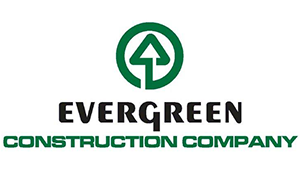Wednesday, October 28, 2015
9:30–10:30 a.m.
Opening/Welcome
- David Bennett, executive vice president, Community Investment Corporation of the Carolinas, Raleigh
- Satana Deberry, executive director, N.C. Housing Coalition, Raleigh
- A. Robert Kucab, executive director, N.C. Housing Finance Agency, Raleigh
State of the South: Building an Infrastructure of Opportunity
David Dodson, president of MDC, will discuss his organization’s latest State of the South report, and its recommendations for economic and social advancement. MDC is a nonprofit organization based in Durham, NC, that has been publishing research and developing programs focused on expanding opportunity, reducing poverty and addressing structural inequity for more than 40 years. With MDC since 1987, Dodson became president in 1999 and frequently speaks on the need to advance equity and opportunity for low-wealth and marginalized communities. He has co-written numerous MDC publications and serves on several foundation, social policy and college boards.
10:45 a.m.–Noon
Housing Credits 101: Learn the Basics
The success of a Housing Credit development depends on the allocating agency, the developer, the lender and the investor. This session will clarify these roles, analyze a typical tax credit transaction and explain the reservation process and tax credit period.
Mark Shelburne, senior manager, public policy, Novogradac & Company LLP, Raleigh
Building Bridges between Affordable and Fair Housing
Fair housing laws work to provide equal housing opportunities for all and include provisions on land use decisions for proposed affordable housing units. This workshop will examine how developers and sponsors can partner with the fair housing community to address issues related to the siting of affordable housing, including zoning and NIMBY-ism. The session will also discuss how to better advocate for housing for people with disabilities.
Jeffrey Dillman and Jack Holtzman, co-directors, Fair Housing Project, Raleigh
Disability Rights NC: Policy Priorities for North Carolinians with Disabilities
Every five years, Disability Rights NC staff and board members hold Listening Sessions across the state with North Carolinians who have disabilities and those interested in disability rights. Hear what participants had to say during the 2015 sessions regarding continuing housing challenges and the changes needed in North Carolina. Also learn how Disability Rights NC is working to eliminate barriers and increase access to integrated, community-based housing in North Carolina.
Yasmin Farahi, staff attorney, Disability Rights NC, Raleigh
Download Yasmin’s presentation
Humidity Happens… Mold Doesn’t Have To
Moisture, humidity and mold have proven to be the unintended consequences of today’s tighter construction and energy saving design standard. Normal resident behaviors, such as showering, cooking and cleaning, can also contribute to this. Learn how to control and prevent this problem in both existing multifamily housing and new construction, and hear real-world case studies.
Mike Riley, principal/architect, Martin & Riley Architects, Decatur, GA; Brian Smith, owner, WB Properties & Construction/Back To Normal Restoration, Ocean Isle Beach, and Ron Revia, product representative and apartment mold eliminator, Innovative Dehumidifier Systems, Ocean Isle Beach
RAD Innovations: Recapitalizing Small Public Housing Properties
The new HUD Rental Assistance Demonstration opens the door for public housing authorities and their developer partners to use various tools – from debt to tax credits – to recapitalize aging public housing properties. This can be a struggle if properties are too small to warrant the Low-Income Housing Tax Credit (LIHTC) transaction costs or attract equity investment, but capital needs are too great without tax credits. The Georgia Department of Community Affairs is piloting a program to facilitate multi-site 4% LIHTC bond transactions. Learn about the program’s structure, players and their roles, and how this approach might serve as a model to recapitalize small public housing properties.
Philip Gilman, affordable housing program specialist, Georgia Department of Community Affairs, Atlanta, GA, and Richelle (Shelly) Patton, principal, Tapestry Development Group, Decatur, GA
Download Richelle’s presentation
Multi-Layered Financing Options that Work for Home Buyers
Mortgage financing experts will explain how to combine the latest federal, state and local mortgage programs to make home buying more affordable. Learn about the N.C. Home Advantage Mortgage’s forgivable down payment options up to 5% of the loan amount and how $2,000 Mortgage Credit Certificates can help first-time buyers. You’ll also get an overview on the latest developments in mortgage regulations and financing and the state’s housing market.
Amy Bonis, loan officer, River Community Bank, Raleigh, and Kevin Martini, executive vice president/producing sales manager, Gateway DNJ Mortgage, Raleigh
12:15–1:45 p.m.
2015 Housing North Carolina Awards Luncheon
2:00–3:15 p.m.
Annual Developers Workshop (2:00–4:45 p.m.)
This intensive workshop outlines proposed changes to the 2016 Qualified Allocation Plan (QAP) and explains how applications for federal and state tax credits will be evaluated in 2016.
Rental Development Staff, N.C. Housing Finance Agency, Raleigh
What to Expect When You’re Inspected
Compliance monitoring on tax credit properties includes onsite review of tenant files and administrative procedures, as well as physical inspection of the development. But what exactly does all that entail? Find out what to expect from an inspection and learn about new compliance rules, efforts to streamline monitoring by multiple agencies and new requirements for management agents for 2016.
Asset Management Staff, N.C. Housing Finance Agency, Raleigh
Download the Agency’s presentation
Community Reinvestment Act: Using Partnerships to Innovate
Community development loans aren’t just a way to meet Community Reinvestment Act requirements — they can also be good business for banks. To be successful, deals need to have participation from a broad range of partners. Join federal regulators for a discussion on the partnerships that don’t just support successful community development but take the lead in expanding local housing and economic opportunities.
Vonda Eanes, district community affairs officer, Officer of the Comptroller of the Currency, Charlotte; Jeanne Milliken Bonds, MPA, regional community development manager, Federal Reserve Bank of Richmond, Charlotte; and Tom Stokes, community affairs officer, Federal Deposit Insurance Corporation, Charlotte
Coordinated Assessment: How It’s Working and What’s Next
Coordinated Assessment is a HUD-mandated initiative for communities to organize how agencies provide services to persons experiencing housing crises. This helps people find housing and appropriate services faster, reduces new homelessness and spotlights local assistance needed by consumers. Hear from experts about coordinated assessment systems in North Carolina, next steps for communities and how this is helping to end homelessness across the state.
Emily Carmody, SOAR coordinator and project specialist, and Corey Root, N.C. Balance of State Continuum of Care coordinator and project specialist, N.C. Coalition to End Homelessness, Raleigh, and Rebecca Pfeiffer, continuum of care coordinator, City of Charlotte
Reviving and Producing Thriving Neighborhoods
Producing and encouraging the development of affordable housing in neighborhoods requires partnership and a diverse set of financing tools. Learn how areas of Asheville and Jacksonville were revitalized into award-winning neighborhoods and hear from sponsors about lessons learned.
Noelle McKay, executive director, Housing Assistance Corporation, Rural USDA Self-Help Housing Neighborhoods, Hendersonville; Tracy Jackson, community development specialist, City of Jacksonville; and Paul Reeves, director of construction services, Asheville Area Habitat for Humanity
Download Noelle’s presentation. Download Tracy’s presentation. Download Paul’s presentation.
Planning for Long Term Sustainability — Tools for Nonprofits to Manage Change
Small nonprofits face many challenges today ranging from shrinking funding sources and changes in federal and state programs to the looming retirements of long-time leaders and experienced staff. Speakers will discuss how their organizations have coped with these issues and provide insight into how funders consider organizational stability, as reflected in agency financial reports, when making funding decisions.
Pat Garrett, former executive director, Charlotte Mecklenburg Housing Partnership; Patsy Dowling, executive director, Mountain Projects, Inc., Waynesville; and Bridgette Burge, N.C. Center for Nonprofits, Raleigh
Download Patsy’s presentation. Download Bridgette’s presentation.
Consumer Financial Protection Bureau’s (CFPBs) New Closing Process and Documents
This workshop will discuss the TILA-RESPA Integrated Disclosure (TRID) rule and its impact on mortgage closing transactions. Discover how two new forms – the Loan Estimate and the Closing Disclosure – and closing procedures will help your clients better understand mortgage-related closing documents.
Sharon McLendon, regional diverse segments manager, Wells Fargo, Durham
3:30–4:45 p.m.
Annual Developers Workshop (2:00–4:45 p.m.)
North Carolina’s Rental Market: What Are the Trends? Where Are the Opportunities?
Learn how housing professionals and investors are assessing housing market needs and opportunities in the state. A panel of rental housing market experts will discuss some of the latest rental housing data and trends for key markets in the state and where opportunities might exist for new rental development.
Patrick Bowen, president, Bowen National Research, Pickering, OH; Jeff Staudinger, president, N.C. Community Development Association, and assistant director, Community & Economic Development, City of Asheville; Kevin Donovan, vice president, Fifth Third Bank, Cincinnati, OH; and Satana Deberry, executive director, N.C. Housing Coalition, Raleigh (moderator)
Download Patrick’s presentation.
USDA Summer Food Service Program: Onsite Deliveries to Assist Food-Challenged Youth
Summer months present a significant challenge for children who depend on the School Lunch program during the school year — especially in rural areas. This session will provide information about the USDA’s Summer Food Service Program, an underutilized resource designed specifically to meet the needs of these children. Learn about the USDA’s program goals, implementation strategies and best practices to provide meals to children — right at the property where they live.
Byron Waters, director, Multi-Family Housing Program, USDA-Rural Development, Raleigh, and Cynthia Ervin, nutrition program consultant, N.C. Department of Public instruction, Raleigh
Download Byron’s presentation. Download Cynthia’s presentation.
Helping Veterans Move from Homeless to Home
Hear how one local supportive housing developer/provider is successfully serving veterans experiencing homelessness. Also, receive an update on the Governor’s strategy to address veteran homelessness through a coordinated statewide effort. This initiative pulls together the Governor’s Working Group on Veterans Service Members and their Families, the U.S. Departments of Veterans Affairs and Housing and Urban Development, the North Carolina Coalition to End Homelessness and several municipalities.
Ilario Pantano, director, N.C. Division of Veterans Affairs, Raleigh; Terry Allebaugh, community impact coordinator, N.C. Coalition to End Homelessness, Raleigh; and Debra King, executive director, CASA, Raleigh
Download Ilario’s presentation. Download Terry’s presentation. Download Debra’s presentation.
Alternatives to Traditional Housing Models
One of the greatest barriers to affordable housing is the limited range of housing options available in North Carolina. Discover alternative models for providing affordable housing, including accessory dwelling units, backyard cottages, co-housing communities and smaller spaces, such as the “tiny home.”
Thomas Barrie, professor of architecture, Accessory Dwelling Units and Backyard Cottages, N.C. State University College of Design, Raleigh; Doug Henderson-James, founding member and manager of Durham Central Park Cohousing Community; Amy Bullington, architect, Clearscapes Architecture and Art, Raleigh; and Erin Sterling Lewis, AIA ,LEED, AP, principal, in situ studio, Raleigh
Download Amy’s presentation. Download Erin’s presentation.
Healthy Homes in Your Community
The scientific evidence on the link between housing and health continues to grow. Learn how Healthy Homes Greensboro — a collaboration of nonprofits, businesses and government organizations committed to reducing housing-related illnesses and injuries — has dramatically decreased the number of substandard housing units by organizing stakeholders, getting the message out, expanding resources and changing legal systems.
Brett Byerly, executive director, and April Richard, Healthy Homes team leader, Greensboro Housing Coalition; and Kevin Lundy, Community Foundation of Greater Greensboro
Download Brett’s presentation.
Business Models to Support Housing Counseling
The times are changing – budget cuts are the norm and housing needs continue to increase. Make sure your agency isn’t left behind. This session will explore best practices on successfully navigating funding challenges and using technology to help your housing counseling agency survive and grow in the coming years.
Peter Skillern, executive director, Reinvestment Partners, Durham
Thursday, October 29, 2015
8:30–9:30 a.m.
N.C. Housing Coalition Annual Membership Meeting and Awards Breakfast
9:45–11:00 a.m.
North Carolina and the National Housing Trust Fund
Affordable housing developers, advocates and residents need to be ready to shape implementation of the National Housing Trust Fund (NHTF), a new federal block grant to states. The grant will support building, rehabbing, preserving and operating (primarily) rental housing for extremely low-income people. This workshop explains how the NHTF will work, eligible activities, intended beneficiaries and the roles of all stakeholders.
Ed Gramlich, director of regulatory affairs, National Low Income Housing Coalition, Washington, DC and Samuel Gunter, director of policy and advocacy, N.C. Housing Coalition, Raleigh
Making Tax-Exempt Bonds and 4% Tax Credits Work for Your Property
Using tax-exempt bonds with 4% tax credits allows developers to combine low interest rates on long-term debt with a substantial equity contribution from the tax credit allocation. North Carolina offers an untapped capacity to create affordable multifamily rental housing using these financing resources. Hear a panel of experts discuss how to make this financing work for your project and community.
Victor E. Agusta, Jr., senior vice president, Bellwether Enterprise Real Estate Capital, LLC, Cary; Dionne Nelson, principal and CEO, Laurel Street Residential, Charlotte; Mary Nash K. Rusher, partner, Hunton & Williams LLP, Raleigh; and Mark Shelburne, senior manager, public policy, Novogradac & Company LLP, Raleigh
Download Victor’s presentations here and here.
Download here for Mark’s and Mary’s presentation.
Linking Housing to Supports: North Carolina’s Olmstead Initiatives
Learn about three state initiatives that support the U.S. Supreme Court’s Olmstead decision, which mandates that people with disabilities who may otherwise require institutional care have access to community-based supports and integrated housing options. The Transitions to Community Living Initiative is a tenant-based rental assistance program with wraparound supports. The Targeting and KEY programs are project-based, increasing housing options and affordability in rental properties for persons with disabilities who receive community supports. The N.C. Money Follows the Person (MFP) Demonstration Project is a Medicaid initiative that helps eligible individuals in long-term care facilities access community-based housing and supports.
Trish Farnham, project director, North Carolina Money Follows the Person Demonstration Project; Ellen Blackman, regional housing manager, N.C. Department of Health and Human Services, Raleigh; and Ken Edminster, housing administrator, N.C. Division of Mental Health/Developmental Disabilities/Substance Abuse Services, Raleigh
Download Paul’s presentation. Download Trish’s presentation.
Single Family Rehab Roundtable: Weigh in on Redesign
The N.C. Housing Finance Agency’s Single Family Rehabilitation Loan Pool focuses on moderate rehab aimed at households with seniors and persons with disabilities as well as homes with lead hazards and a child 6 years old or younger. The Agency currently serves 32 to 33 rotating counties each year. Join the Agency’s rehab team at a roundtable discussion to share your ideas for improving the program to better meet your community’s needs.
Mike Handley, manager, housing rehabilitation, Chuck Dopler, housing rehab/supportive housing officer, and Donna Coleman, community development coordinator, N.C. Housing Finance Agency, Raleigh
Dispelling the Myths of FHLBank Atlanta’s Affordable Housing Program
Many myths persist about the Federal Home Loan Bank (FHLBank) of Atlanta’s Affordable Housing Program (AHP). These range from rural markets being at a disadvantage for funding to not being able to use AHP from different FHLBanks in the same project. Join us for an interactive discussion as we dispel those myths, and help you better understand the FHLBank Atlanta’s AHP products and services.
Arthur Fleming, SVP, Director of Community Investment Services, FHLBank Atlanta
From the Inside Out: Effective Ways to Manage Stress
For housing professionals, stress is often a given. Will our organization get the funding it needs? Can we help that family save their home? Will we have a NIMBY fight on our hands? And that doesn’t even touch the life stressors that everyone faces. But stress doesn’t have to run your life. In this must-attend session, you’ll discover effective stress management techniques that will change how you respond to stressful situations — and even help you make stress work for you. Reduced stress can mean improved physical and mental health, productivity, and relationships — come discover the benefits yourself!
Karen R. Perry, founder and certified professional coach, Life Coaching with KP, and principal, KRP Investments, LLP, Clemmons
Download Karen’s presentation. Download handout.
11:15 a.m.–12:30 p.m.
Industry Update
2015 State and Federal Housing Action
Samuel Gunter, director of policy and advocacy, NC Housing Coalition, Raleigh
Will Parry-Hill, government and community liaison, NC Housing Finance Agency, Raleigh
What’s Next for North Carolina’s Economy?
Harry M. Davis, PhD, professor of finance at Appalachian State University, will close the conference with his economic outlook for the state. As economist for the North Carolina Bankers Association, Davis’ quarterly economic forecasts are carried by various news outlets. He speaks often at state, regional and national banking conventions on economic and banking issues. Davis also serves as dean and instructor for the N.C. School of Banking; an instructor for the Director’s College sponsored by the N.C. Commissioner of Banks and the FDIC; and serves as an instructor for the North Carolina Insurance Executive Management School and the South Carolina School of Banking.







